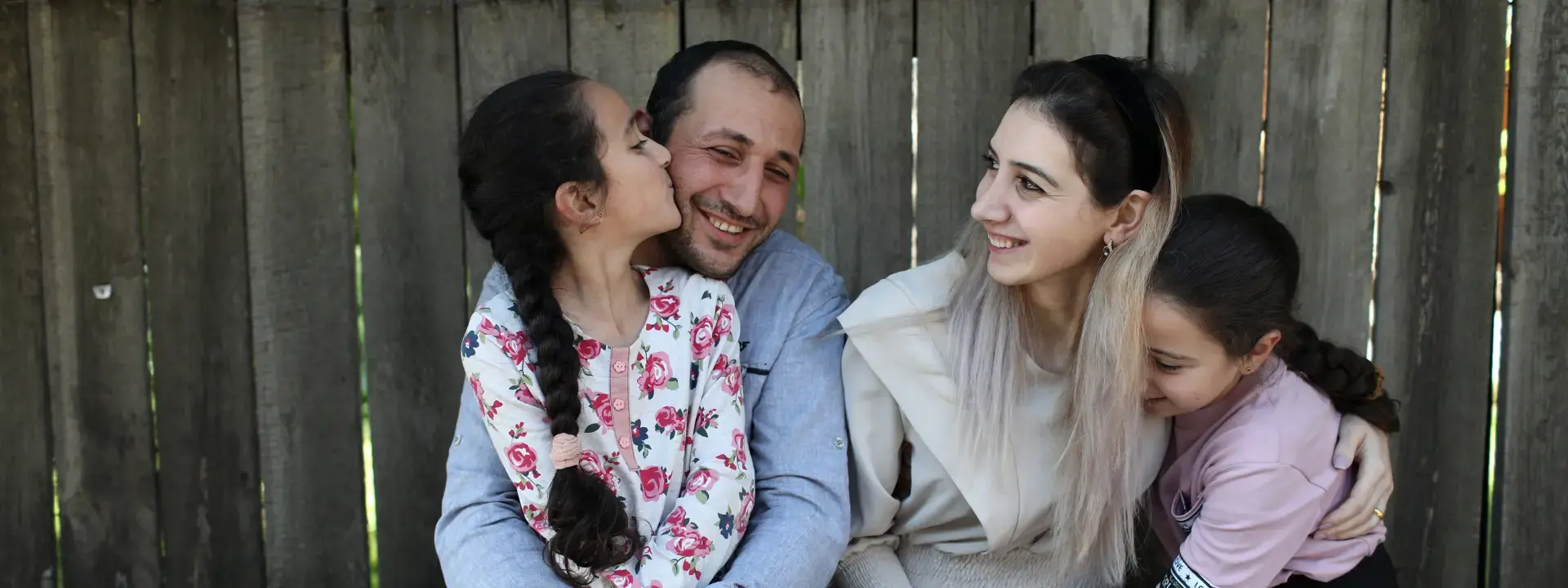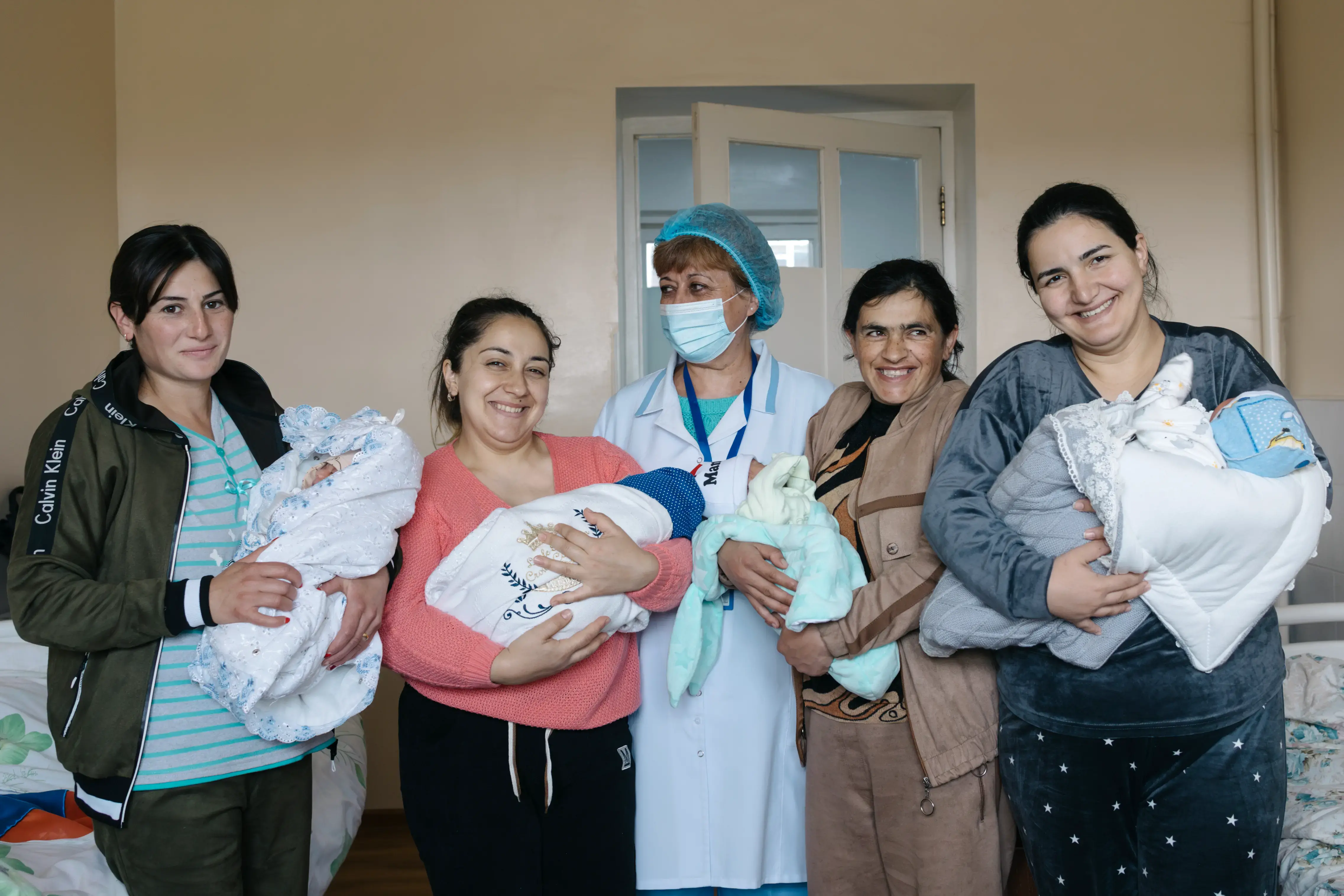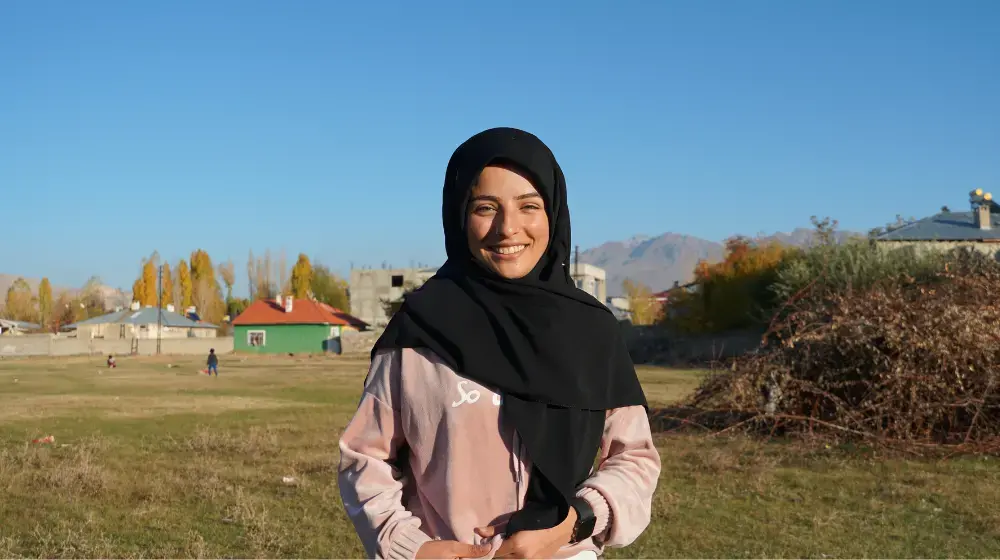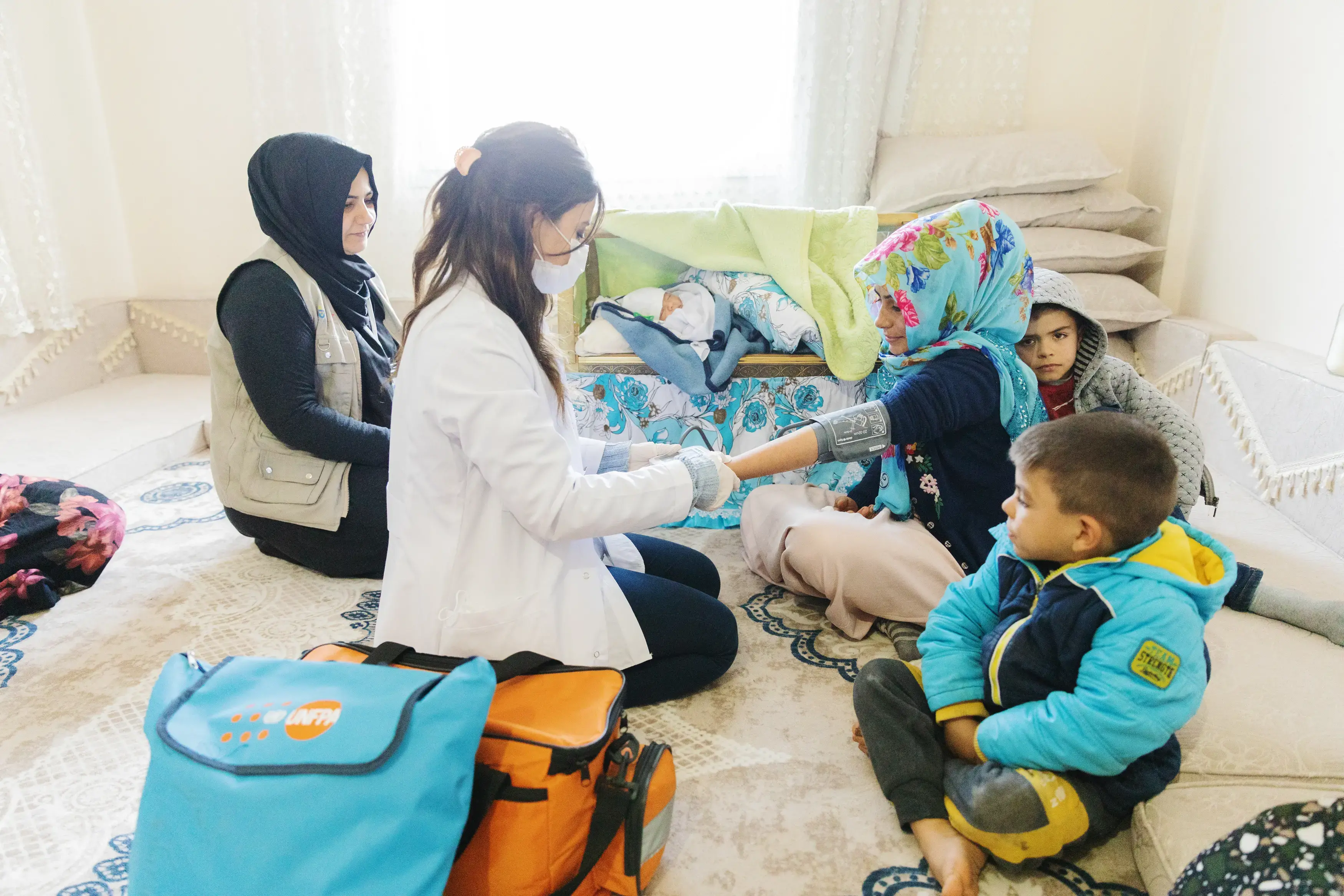The normal sex ratio at birth ranges from 102 to 106 males per 100 females. However, ratios much higher than normal – sometimes as high as 130 – have been observed, especially in countries with deep-rooted gender inequality and patriarchal family values.
The practice of prenatal sex selection in favour of male offspring perpetuates the culture of gender inequality and can lead to serious, long-lasting social and economic consequences and demographic impacts. In the Eastern Europe and Central Asia region, birth registration documents provide statistical evidence of prenatal sex selection in favour of boys in Azerbaijan (116.8 boys born for every 100 girls, an imbalance surpassed only by China, with 117.8), Armenia (114.8), Georgia (113.6), and Albania (111.7).
In Armenia, the imbalance is particularly dramatic for third births: the record level of 173 sons born for every 100 daughters has no known equivalent anywhere else in the world. According to a report released by UNFPA in 2013, nearly 93,000 women will be “missing” in Armenian society by 2060 if the country’s high prenatal sex selection rate remains unchanged. Studies conducted in Albania demonstrate that as many as 15,000 female foetuses may have been aborted between 2000 and 2010, a figure that corresponds to 7 per cent of all female births over the same time period.
The practice of prenatal sex selection distorts the natural sex ratio, leading to a long-lasting population imbalance and reinforcing sexist stereotypes about women by devaluing females. A deficit of young women can make it difficult for men to find partners and may lead to higher emigration levels among young males and increased violence and discriminatory acts against women, including bride trafficking, prostitution, lowered marriage ages, and a resurgence in forced or arranged marriages.
The issue of gender-biased prenatal sex selection was flagged more than 15 years ago at the International Conference on Population and Development. The Programme of Action from that meeting, which guides UNFPA, calls on governments to “eliminate all forms of discrimination against the girl child and the root causes of son preference”, which can result in harmful and unethical practices such as female infanticide, prenatal sex selection, and violence against the girl child.
UNFPA works with a broad spectrum of stakeholders and supports community networks to advocate against sex selection, while also engaging in policy dialogue and interregional cooperation on the issue between Eastern Europe and Central Asia and the Asia-Pacific region. UNFPA has supported the collection and analysis of data on the causes and consequences of this issue in Albania, Armenia, Azerbaijan, Georgia, and Kosovo (UNSCR 1244). It supports countries in developing policies to address prenatal sex selection practices while protecting women’s reproductive health and rights, and works to sensitize healthcare providers, young people, and faith and community leaders to view sex selection as reinforcing discriminatory attitudes towards women and girls.
Learn more about our work on ending gender-biased prenatal sex selection:





